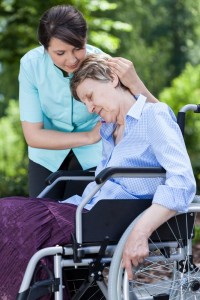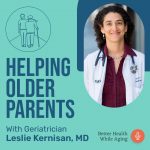
And once again, high blood pressure is making headlines in the news: the American Heart Association and the American College of Cardiology (AHA/ACC) have just released new guidelines about hypertension.
Since this development is likely to cause confusion and concern for many, I’m writing this post to help you understand the debate and what this might mean for you and your family.
By the way, if you’ve read any of my other blood pressure articles on this site, let me reassure you: I am not changing my clinical practice or what I recommend to others, based on the new AHA/ACC guidelines.
The core principles of better blood pressure management for older adults remain the same:
- Take care in how you and your doctors measure blood pressure (more on that here),
- Start by aiming to get blood pressure less than 150/90 mm Hg, as recommended by these expert guidelines issued in 2017 and in 2014,
- And then learn more about what are the likely benefits versus risks of aiming for more intensive BP control.
Perhaps the most important thing to understand is this: treatment of high blood pressure in older adults offers “diminishing returns” as we treat BP to get lower and lower.
Scientific evidence indicates that the greatest health benefit, when it comes to reducing the risk of strokes and heart attacks, is in getting systolic blood pressure from high (i.e. 160-180) down to moderate (140-150).
From there, the famous SPRINT study, published in 2015, did show a further reduction in cardiovascular risk, when participants were treated to a lower systolic BP, such as a target of 120.
However, this was in a carefully selected group of participants, it required taking three blood pressure medications on average, and the reduction in risk was small. As I note in my article explaining SPRINT Senior, in participants aged 75 or older, pushing to that lower goal was associated with an estimated 1-in-27 chance of avoiding a cardiovascular event. (The benefit was even smaller in adults aged 50-75.)
SPRINT did not include people who have certain common conditions, including diabetes, heart failure, past stroke, or dementia. Hence it’s not clear that the (small) benefits of intensive blood pressure control would apply to those older adults who would not have qualified for the SPRINT trial.
I will come back to the SPRINT study later in the article, since it undoubtedly influenced the recent AHA/ACC guidelines. But first, a little on why the new guidelines are notable.
[Read more…]









